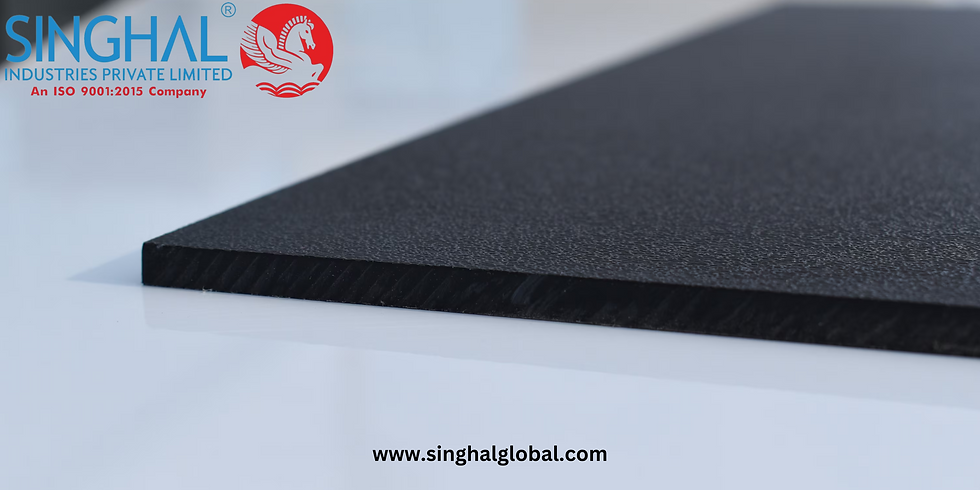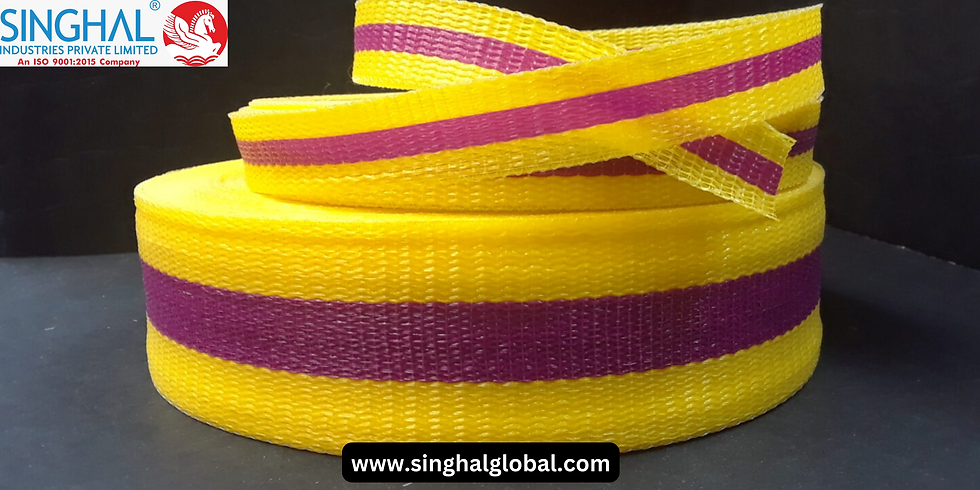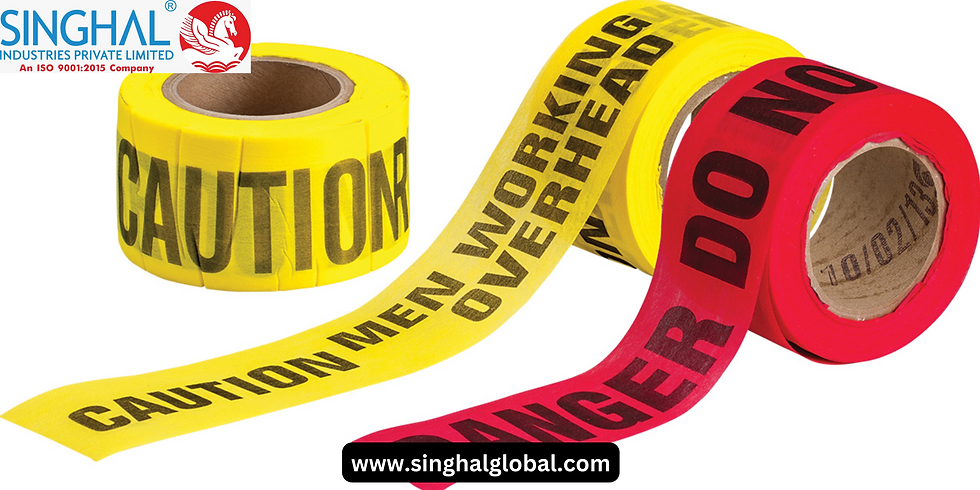Exploring Advances in PP Spunbond Nonwoven Fabric Production
- dmktg11singhal
- Jul 20, 2024
- 4 min read

In recent years, the textile industry has witnessed significant advancements in the production of nonwoven fabrics, particularly polypropylene (PP) spunbond nonwoven fabrics. As a prominent PP nonwoven fabric manufacturer, Singhal Industries Pvt Ltd has been at the forefront of these innovations. This article delves into the technological breakthroughs that have revolutionized the production of PP spunbond nonwoven fabric, highlighting the progress made by PP nonwoven fabric manufacturers, especially those based in Ahmedabad.
Evolution of PP Spunbond Nonwoven Fabric
The journey of PP spunbond nonwoven fabrics began with basic manufacturing techniques that have evolved significantly over the decades. Initially, the production process involved simple methods of bonding fibers through heat and pressure. However, technological advancements have introduced sophisticated machinery and techniques that enhance the quality, efficiency, and versatility of the final product.
Advances in Fiber Technology
One of the critical areas of advancement in PP spunbond nonwoven fabric production is fiber technology. Modern PP non woven fabric manufacturer have embraced innovative fiber extrusion technologies that produce finer, more consistent fibers. These advancements result in nonwoven fabrics with improved strength, durability, and softness. Singhal Industries Pvt Ltd, as a leading PP nonwoven fabric manufacturer in Ahmedabad, has incorporated state-of-the-art fiber extrusion equipment to ensure high-quality production.
Enhanced Spunbonding Techniques
Spun bonding technology is the core of PP spunbond nonwoven fabric production. Traditional spunbonding methods have been refined through the integration of advanced machinery and process controls. Newer spinning techniques allow for better fiber alignment and bonding, which translates into enhanced fabric properties. The introduction of multi-beam spunbond lines has enabled manufacturers to produce wider and more uniform fabric rolls, catering to diverse industrial applications.
Automation and Process Optimization
Automation has played a crucial role in modernizing PP spunbond nonwoven fabric production. The incorporation of automated systems in manufacturing processes has significantly improved efficiency and consistency. Automated control systems monitor and adjust various parameters in real-time, ensuring optimal production conditions and minimizing human error. For PP nonwoven fabric manufacturers, including those in Ahmedabad, automation not only boosts productivity but also reduces production costs.
Environmental Considerations and Sustainability
The push for environmental sustainability has led to significant advancements in the production of PP spunbond nonwoven fabrics. Modern technologies focus on reducing the environmental impact of production processes. Innovations such as recycling technologies for polypropylene waste and the development of eco-friendly additives have become integral to the manufacturing process. Singhal Industries Pvt Ltd has been actively involved in adopting sustainable practices to minimize its environmental footprint, aligning with global efforts towards eco-friendly production.
Quality Control and Testing Innovations
Quality control remains a fundamental aspect of PP spun bond non woven fabric production. Advances in testing and quality assurance technologies have enabled manufacturers to produce fabrics that meet stringent quality standards. Sophisticated testing equipment now allows for more precise measurement of fabric properties such as tensile strength, elongation, and pore size. These advancements ensure that the final product meets the specific requirements of various applications, from medical to industrial uses.
Customization and Application-Specific Solutions
The demand for customized nonwoven fabrics has driven innovation in production techniques. Modern PP spunbond nonwoven fabric manufacturers are now capable of producing fabrics tailored to specific applications and customer requirements. Through advanced process controls and customization options, manufacturers can produce fabrics with varying properties such as thickness, color, and pattern. This flexibility has opened new avenues for the use of nonwoven fabrics in diverse industries, including automotive, agriculture, and healthcare.
Integration of Smart Technologies
The integration of smart technologies into the production process has brought a new dimension to PP spunbond nonwoven fabric manufacturing. The use of Internet of Things (IoT) devices and sensors enables real-time monitoring and data collection throughout the production cycle. This data-driven approach allows manufacturers to make informed decisions, optimize production processes, and predict maintenance needs. For PP nonwoven fabric manufacturers like Singhal Industries Pvt Ltd, smart technologies enhance operational efficiency and ensure high-quality output.
Future Trends
Looking ahead, the future of PP spunbond nonwoven fabric production is poised for further technological advancements. Emerging trends include the development of high-performance fabrics with enhanced properties, such as increased strength and improved barrier functions. Researchers are also exploring the use of alternative raw materials and advanced nanotechnology to create innovative nonwoven fabric solutions. Staying abreast of these trends will be crucial for PP nonwoven fabric manufacturers in maintaining their competitive edge and meeting evolving market demands.
Conclusion
The technological advances in PP spunbond nonwoven fabric production have significantly transformed the textile industry, enhancing the quality, efficiency, and sustainability of nonwoven fabrics. With innovations in fiber technology, spun bonding techniques, automation, and environmental considerations, manufacturers are better equipped to meet the diverse needs of various industries. Singhal Industries Pvt Ltd, as a leading PP nonwoven fabric manufacturer in Ahmedabad, exemplifies the industry’s progress and commitment to excellence. As technology continues to evolve, the future of PP spunbond nonwoven fabric production promises even greater advancements and opportunities for growth. Frequently Asked Questions (FAQs) Can PP spunbond nonwoven fabric be customized?
Yes, PP spunbond nonwoven fabric can be customized to meet specific requirements. This includes adjustments in fabric thickness, color, texture, and strength, allowing for tailored solutions for different industries.
Is PP spunbond nonwoven fabric environmentally friendly?
Recent advancements in PP spunbond nonwoven fabric production have emphasized sustainability. Singhal Industries Pvt Ltd has adopted eco-friendly practices, including recycling and the development of biodegradable fabrics, to minimize the environmental impact.
What are the common applications of PP spunbond nonwoven fabric?
PP spunbond nonwoven fabric is used in a variety of applications, including medical and hygiene products, agricultural covers, packaging materials, and industrial filters.



Comments